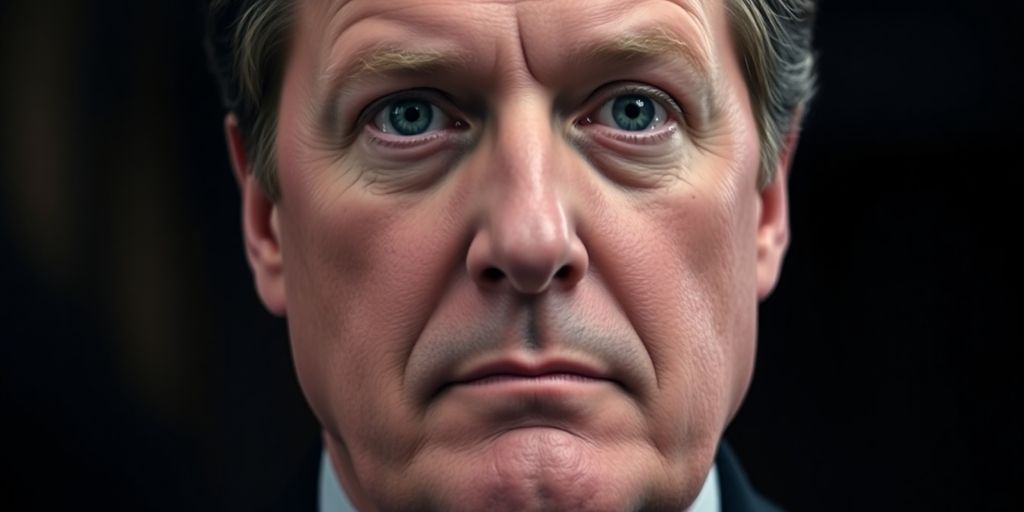Tucker Carlson’s Message to America on the Epstein Cover-Up | Full Speech

Tucker Carlson recently spoke at a TPUSA event in Tampa, Florida, delivering a powerful speech followed by a Q&A session. He focused on the Jeffrey Epstein case, foreign policy, and domestic issues like debt and housing. Carlson emphasized the importance of asking tough questions and holding those in power accountable, arguing that citizens deserve honest answers from their government.
The Epstein Cover-Up: Unanswered Questions
Carlson started by addressing the Jeffrey Epstein case, highlighting the public’s frustration with the lack of clear answers. He pointed out that the official narrative often dismisses legitimate questions as "conspiracy theories." Carlson believes the cover-up has been ongoing for years, suggesting that the initial search warrant in 2007 was designed to protect Epstein, not expose him.
He raised critical questions about Epstein’s wealth and connections:
- Where did Epstein’s money come from, given his background as a math teacher with no college degree?
- Why has no one investigated the source of his vast fortune, including multiple airplanes, a private island, and a massive Manhattan residence?
- Was Epstein working on behalf of intelligence services, possibly foreign ones, to gather compromising information?
Carlson stressed that asking these questions is not hateful or anti-Semitic, even if it involves foreign governments like Israel. He argued that citizens have a right to know if crimes were committed on American soil, especially if foreign entities were involved. He criticized the tendency to label anyone who asks such questions as a "nutcase" or "lunatic," asserting that this tactic is used to silence dissent and avoid accountability.
Key Takeaways:
- The Epstein case is infuriating because it shows a certain class of people getting away with serious crimes.
- The government’s refusal to answer questions about Epstein’s network is a major concern.
- Citizens should not be shamed for seeking the truth, regardless of who it implicates.
The Infuriating Unfairness of the System
Carlson expanded on the Epstein case, linking it to a broader sense of unfairness in American society. He noted that ordinary people face strict consequences for minor infractions, while the powerful often escape accountability for much larger wrongdoings. He used the example of illegal immigration, where newcomers receive benefits while citizens struggle.
He questioned how individuals with seemingly no real skills become billionaires, suggesting that their wealth is often accumulated through questionable means. Carlson argued that this disparity is not about hating the rich, but about the growing poverty and struggles of everyone else, especially young people.
Debt and the American Dream
Carlson highlighted the devastating impact of debt on American families, particularly credit card debt. He argued that this financial burden is a major cause of suffering, far more immediate than distant foreign threats.
He pointed out that the inability of young people to afford homes is a national emergency. This issue, he believes, leads to a lack of ownership and stability, making the country more volatile. He emphasized that owning a home is crucial for starting a family and building a secure future, yet it’s becoming increasingly out of reach for many.
Reclaiming American Priorities
Carlson concluded by urging Americans to define their own priorities rather than accepting what the ruling class dictates. He criticized the focus on foreign conflicts and abstract threats while domestic problems like urban decay, drug addiction, and economic hardship are ignored.
He called for a shift in focus:
- Address immediate problems like credit card debt and housing affordability.
- Demand accountability from leaders regarding the state of American cities and the drug crisis.
- Prioritize the well-being of American citizens over foreign entanglements.
Carlson stressed that if citizens don’t demand answers and solutions to these real-world problems, the country risks heading in a "dark direction," marked by social unrest and division. He believes that true patriotism means holding leaders accountable and ensuring that the government serves the interests of its own people first.
Q&A Highlights
During the Q&A, Carlson addressed several key topics:
- Amnesty for Farm Workers: He strongly opposed any form of amnesty for illegal immigrants, arguing that the country is already struggling with a large undocumented population and that such measures would further undermine citizenship.
- Dual Citizenship: Carlson stated that no one can serve two masters, implying that dual citizenship is problematic. He believes that anyone serving in a foreign military should lose their American citizenship, emphasizing that loyalty should be singular.
- Cuba Policy: He questioned the effectiveness of the long-standing embargo on Cuba, suggesting that current policies are not working to liberate the island. He advocated for a re-evaluation of foreign policy to focus more on the Western Hemisphere, given its direct impact on American migration and drug issues.
- Criticizing Israel: Carlson reiterated that criticizing a foreign government, including Israel, is not anti-Semitic. He argued that it’s a right of a free citizen to question the actions of any government, especially when it involves American interests or taxpayer money. He highlighted the absurdity of being able to burn an American flag but facing severe backlash for criticizing Israel’s flag, calling it "totally outrageous."
Carlson’s speech was a call to action for Americans to challenge authority, demand transparency, and prioritize the well-being of their own country and citizens.








Responses